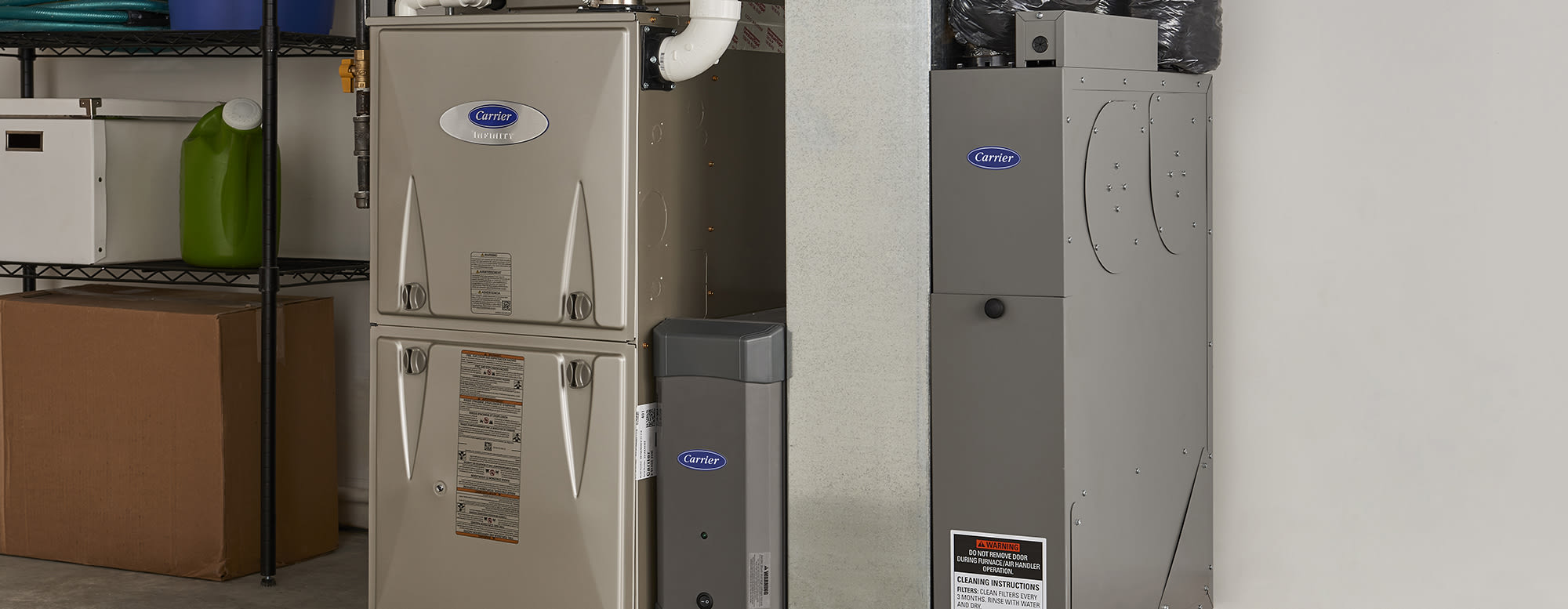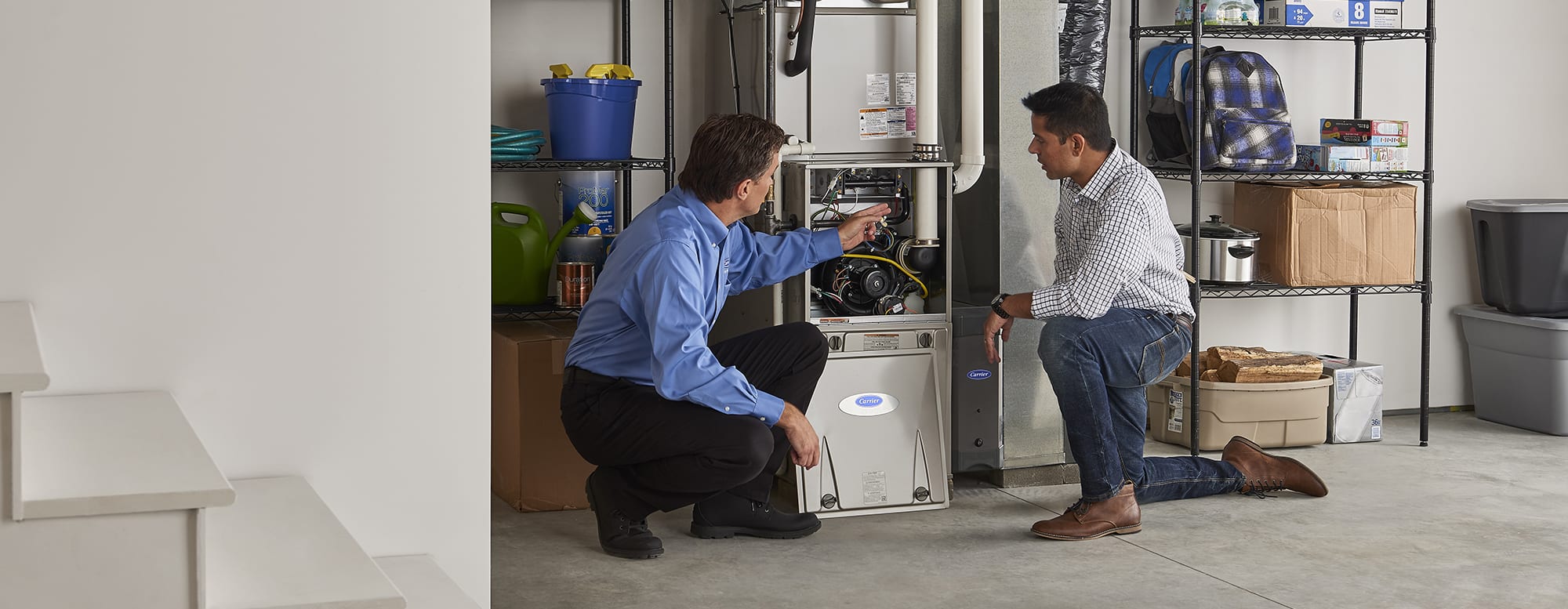AFUE (Annual Fuel Utilization Efficiency)
AFUE stands for Annual Fuel Utilization Efficiency. For furnaces and boilers it’s kind of like miles-per-gallon or MPG for cars. It’s a standard measurement of how efficiently a furnace converts energy from the fuel it uses into warm air for your home. All furnace manufacturers are required by the Department of Energy to display each unit’s AFUE so consumers can compare efficiencies between one furnace and another. The rating for a furnace is found on the familiar yellow Energy Guide label, similar to the one seen on virtually every appliance in the United States. Keep in mind that while annual fuel utilization efficiency ratings are a good way to compare efficiencies, calculating actual operating costs for a new heating system or an older furnace is a bit more complicated. This is due to a number of variables including the differences in pricing for natural gas and heating oil. Currently, the minimum standard for new furnaces and boilers is 80% AFUE.
How is the Furnace AFUE rating calculated?
The furnace AFUE rating is calculated using the total annual heating output from the furnace versus the amount of fuel input over the same time period. The published rating of a furnace should be considered its average rating, not the efficiency it will achieve every single day. When making a purchase decision based on ratings, keep in mind that models with higher numbers are often deluxe heating units with extra features and benefits. Those units also typically come with a higher price tag as well, so you may want to research the potential savings on your utility bills when making your decision.
Because your actual operating costs take into account a number of variables such as the size of your home, thermostat settings, fuel type and more, your local Carrier dealer can be an excellent source for obtaining a reasonable estimate of these costs. Professional HVAC dealers have access to estimating tools that can help show your potential savings by stepping up from an 80% AFUE furnace model to a 90% or higher model.
For consumers making choices based on environmental impact, selecting the highest energy efficiency furnaces or boilers makes a lot of sense. Because they are more efficient furnaces, they can use less fuel compared to the same-sized 80% AFUE unit. And because they convert more of the fuel into heating energy that warms your home, fewer combustion gases are vented outside during the heating process.
What is a Good AFUE Furnace Rating?
So, now the question is, what is a good AFUE furnace rating?
When comparing annual fuel utilization for furnaces and boilers, keep in mind the current minimum allowed by the Department of Energy is a rating of 80% for gas furnaces. By today’s industry standards, a minimum efficiency model actually falls into the mid-efficiency category of 80 – 83% AFUE. These furnaces usually include fans that control the flow of combustion air and gases, and typically have electronic ignition instead of a continuously burning pilot light. Low efficiency units are older, existing systems that may reach 56 – 70% AFUE. These units often include a continuous pilot light and natural draft induction. High efficiency units are in the 90 – 98.5% AFUE and include features like two heat exchangers, a sealed combustion system, two or more heating stages, variable speed fans and “intelligent” controls.1

Common Pitfalls of the AFUE Furnace Rating
These ratings can be a useful tool in comparing furnaces and choosing efficient models, but it’s important to look at additional factors before making your decision. When it comes to operating costs, the type of fuel used may actually be a more important factor due to differences in prices between natural gas and heating oil. The ratings also don’t take into account decreases in heat output that may occur through leaky vent systems or poor home insulation. And, two furnaces with the same rating may also have big differences in terms of comfort features like low and high stage heating and variable-speed operation.
Buying a furnace for your home can require research and thoughtful consideration, so be sure to consult with a Carrier home comfort expert when it’s time to make your decision and they can recommend which type of furnace is best suited for your home and help with calculating furnace size .
1 https://www.energy.gov/energysaver/home-heating-systems/furnaces-and-boilers
Frequently Asked Questions About AFUE Rating
- Read more about comparing types of furnaces
- How much does it dost to replace vs repair a furnace?
- How long does a furnace last?
- Guide to gas furnaces
- Explore furnace repair & service
- Learn how do gas furnaces work?
- Discover the cost of a gas furnace
- Learn the ins and outs of gas furnace replacement
- Explore propane furnaces
- Read about furnace installation


